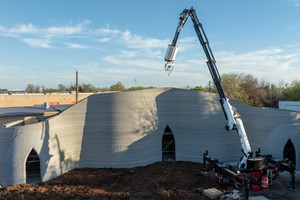Construction projects require instant, reliable access to data. Projects of all sizes run on shared information, whether that be related to scheduling, costs, risk, or resources.
Traditionally, information would have been stored on local computer drives or ring-fenced on local networks. Communication with partners or contractors outside of a business may have entailed sharing documentation and data by email or export/import from unconnected databases, which as well as being slow also introduced the chance of error or data loss.
Nowadays, however, there is a smarter option: the cloud.
The increasingly popular choice
The benefits of using the cloud are becoming better understood.
The construction industry was originally built on a pen and paper approach, like many others. Site plans and project charts acted as the precursor to cloud-hosted databases. The challenges of digitizing large projects over multiple sites with emerging technology have previously contributed to a degree of continued reliance on these more traditional approaches, however, these challenges are starting to be overcome and the picture for the construction industry is now changing.
The cloud offers a scalable and flexible solution to the construction industry
Construction projects come in a range of sizes. A cloud-based solution can be tailored to any size project and can also be flexible enough to increase or decrease in size depending on requirements.
This scalability is a huge advantage for construction projects because scope can often change within a project lifecycle. The cloud is ideally suited to deal with these changes in scope, as capacity can be adjusted accordingly, and pricing can be structured to take account of these changes too.
The accessibility of information is second to none
Using a cloud-hosted data solution means that all members of the project team can access whatever information they need instantly, from anywhere in the world.
As information is uploaded and shared in real-time, there is no lag between data being logged and it is becoming available elsewhere. For the construction industry this is hugely important because projects often operate from a location separate to the project team HQ.
Disaster recovery is smoother if things go wrong
One of the major problems with storing data locally (apart from the problems of data-sharing) is the risk of data loss through some sort of physical event. This might be a flood, a fire, a hardware problem with a server, or access by someone not authorized to do so, for example.
Using the cloud means that if a problem like this occurs, the disaster recovery process is a lot smoother than if the information is kept locally. Also, using portable devices to instantly upload information to the cloud means that paperwork can’t get lost, and vital local IT equipment won’t get damaged. If a construction delay claim is filed, then it’s critical to have a full and complete audit trail of project activity. Secure data storage in the cloud helps ensure this is available.













